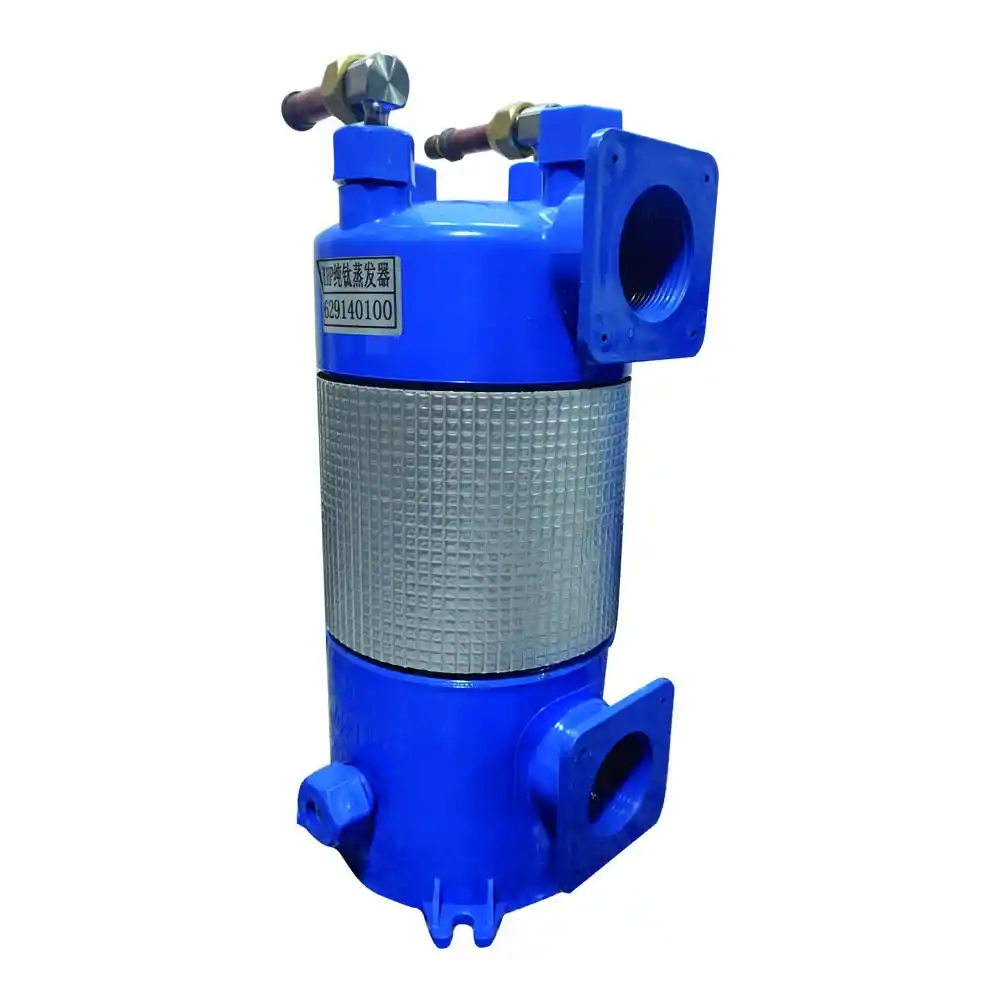Introduction
Titanium coil heat exchangers with blue PVC shells find significant applications in the oil and gas refining industry. These heat exchangers offer excellent corrosion resistance, high thermal efficiency, and durability, making them suitable for various processes within the industry. This section explores the diverse applications of titanium coil heat exchangers in oil and gas refining.
Importance of Heat Exchangers in Oil and Gas Refining
Heat exchangers play a critical role in the oil and gas refining industry for the following reasons:
-
Heat Recovery: Heat exchangers enable the recovery and utilization of waste heat from different refinery processes, reducing energy consumption and enhancing overall energy efficiency.
-
Temperature Control: Heat exchangers facilitate precise temperature control during various refining processes, such as crude oil distillation, catalytic cracking, and reforming, ensuring optimal process conditions and product quality.
-
Corrosion Resistance: The corrosive nature of many fluids and gases in oil and gas refining requires heat exchangers with superior corrosion resistance. Titanium coil heat exchangers excel in this regard, offering excellent resistance to a wide range of corrosive media.
-
Fouling Prevention: Heat exchangers help prevent fouling by effectively transferring heat and maintaining fluid velocities, reducing the formation of deposits and improving system performance and reliability.
Applications of Titanium Coil Heat Exchangers in Oil and Gas Refining
Titanium coil heat exchangers with blue PVC shells are widely utilized in various processes within the oil and gas refining industry, including:
1. Crude Oil Distillation
In the crude oil distillation process, titanium coil heat exchangers are employed for the following applications:
- Preheating crude oil: Heat exchangers preheat the incoming crude oil by utilizing heat from the outgoing products, enhancing the overall energy efficiency of the distillation process.
- Cooling and condensing overhead vapors: Heat exchangers facilitate the condensation of overhead vapors, converting them into liquid products for further processing or storage.
2. Catalytic Cracking and Reforming
Titanium coil heat exchangers play a crucial role in catalytic cracking and reforming processes:
- Cooling and condensing cracked products: Heat exchangers aid in the cooling and condensation of cracked products, enabling their separation and subsequent recovery.
- Heat recovery from flue gases: Heat exchangers recover waste heat from flue gases and transfer it to incoming feed streams or other process fluids, improving energy efficiency.
3. Natural Gas Processing
In natural gas processing, titanium coil heat exchangers are utilized for various applications, including:
- Heat exchange in gas sweetening: Heat exchangers facilitate the heat exchange between hot sour gas and a lean amine solution during gas sweetening processes, reducing the acid gas content.
- Cooling and liquefaction: Heat exchangers cool and condense natural gas for liquefaction, enabling easier storage and transportation.
4. Refinery Off-Gas Treatment
Heat exchangers are essential in off-gas treatment processes, including:
- Heat recovery from off-gases: Heat exchangers recover heat from off-gases, maximizing energy efficiency and reducing environmental impact.
- Cooling and condensing off-gases: Heat exchangers aid in the cooling and condensation of off-gases, facilitating the separation and recovery of valuable components.
5. Refinery Utilities
Titanium coil heat exchangers are widely used in refinery utilities, including:
- Cooling and heating utility fluids: Heat exchangers provide efficient cooling or heating of utility fluids, such as cooling water, process water, and steam, for various refinery operations.
- Heat recovery from process streams: Heat exchangers recover waste heat from different process streams and utilize it for preheating other fluids, reducing energy consumption.
Comparison of Titanium Coil Heat Exchangers with Other Materials
The following table provides a comparison of titanium coil heat exchangers with other materials commonly used in oil and gas refining:
| Material | Advantages | Limitations |
|---|---|---|
| Titanium | Excellent corrosion resistance, high thermal efficiency | Higher cost compared to some alternative materials |
| Stainless Steel | Good corrosion resistance, widely available | Limited resistance to certain corrosive media |
| Nickel Alloys | Superior corrosion resistance in highly corrosive media | Higher cost compared to other materials |
| Carbon Steel | Cost-effective, suitable for non-corrosive applications | Prone to corrosion in corrosive environments |
Note: The material selection should consider factors such as process conditions, fluid composition, and operational requirements specific to oil and gas refining.
Conclusion
Titanium coil heat exchangers with blue PVC shells play a crucial role in the oil and gas refining industry, offering corrosion resistance, high thermal efficiency, and durability. From crude oil distillation and catalytic cracking to natural gas processing and refinery utilities, these heat exchangers provide efficient heat transfer, temperature control, and energy recovery. Understanding the diverse applications and advantages of titanium coil heat exchangers enables manufacturers to meet the specific needs and challenges of the oil and gas refining industry, contributing to enhanced process efficiency and overall operational performance.


